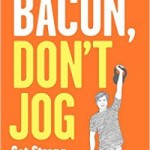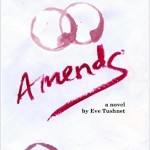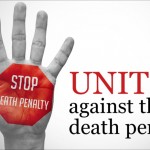Recently I posted the first of what are bound to be many, many posts raving about Catholicism; A Journey to the Heart of the Faith and urging you to purchase the book, read it and — you won’t be able to resist — give it to everyone you know.
My husband and I are giving it to our priests and the parish DRE, and we’re not waiting for Christmas!
And I haven’t actually even written my rave review, yet. But while I figure out how to do that, George Weigel has written a rave of his own, this time for the DVD Series!
[PBS’] “Civilization” was the perfect way to finish a serious undergraduate liberal arts education; it brought together ideas, art, architecture and history in a visually compelling synthesis of the history of western culture that respected Catholicism’s role in shaping the West.
Over the next four decades, I wondered whether someone, somewhere, at some point, would do a “Civilization”-like series on Catholicism itself: a Grand Tour of the Catholic world that explored the Church as a culture through its teaching, its art, its music, its architecture—and above all, through the lives it shaped. That has now happened. The result is the most important media initiative in the history of the Catholic Church in the United States.
 I have been lucky enough to see the first episode (I am heading into retreat in a few hours and am bringing additional episodes with me, to watch) and I concur. The book is stand-alone splendid, but together with the series (and the study program) we’re talking about a flint-strike that could spark a conflagration of Catholic renewal and a hunger for adult catechesis that could literally change the world.
I have been lucky enough to see the first episode (I am heading into retreat in a few hours and am bringing additional episodes with me, to watch) and I concur. The book is stand-alone splendid, but together with the series (and the study program) we’re talking about a flint-strike that could spark a conflagration of Catholic renewal and a hunger for adult catechesis that could literally change the world.
That is not an exaggeration.
I got an email tonight from a woman who read this post and realized that the reality of the world “as it is” makes her unhappy.
Well, combating the world “as it is” requires us to teach and admonish, not with the tactics of the world, but “in wisdom made holy” through the love of Christ. If we do that correctly we will — like the early Christians — attract others, and thus assist the Holy Spirit in the turning of the world toward the light.
If we do it incorrectly, we will only repel those who are perhaps in the greatest need to come to know the love of Christ and his salvation. And then we will have to deal with a turned-off, tuned-out world whose heels are stubbornly dug-in to the darkness.
Worse, we will have to answer to Christ as to why we trusted the worldly way of confrontation — the way of anger and distrust and scored points and power — over His way, and the way of His saints, the way of patience, humility and love.
Bl. Pope John Paul II famously said that we Catholics must look at the world clearly and see it “as it is” before we can help to form it into something more perfect-in-Christ.
To do that, we to pray, certainly, and we need more than prayer, but we are not sure what that might be.
I believe this effort by Father Robert Barron’s Word on Fire — its instruction, it’s beauty, it’s passion and it’s profound humanity in exploring the Incarnational Christ and His church — may well be the precise and timely tool we need to learn how to respond to the world “as it is,” because it tells us things about ourselves, our church and our Savior that many of us do not even know, or have perhaps forgotten.
Think about it. The person who really knows who he or she is, and is true to himself or herself, is the magnetic and trustworthy person with whom you feel safe enough to engage in discourse — because you know that person needs nothing from you for their own validation.
If Catholics do not know who they are, what they believe and why they believe it, they face the world at a profound disadvantage, because they have only the world and its promptings and provocations to respond (or react) to, and a spiritual arsenal that needs serious replenishing.
Catholicism is what we need to replenish and renew; this is the adult catechesis that can re-invigorate one soul, and then another, and then another, until a secure and confident force amasses — one that in the face of “reality” and relativism can declare “we know who we are, and who sustains us,” and effect the spiritual and social revolutions we so desire.
Father Barron knows that the Catholic Church is a community of sinners whose infidelities have often marred the face of the Lord. At the same time, Father Barron’s series displays the innumerable ways that the Catholic Church has been and remains a force for truth, decency, compassion, and sanity in an often-cruel world.
Watch it. Politely lobby your local public television station to show the series in its entirety. Spread the word.
Amen.
Related: Read an interview with Fr. Barron on why he filmed “Catholicism”












